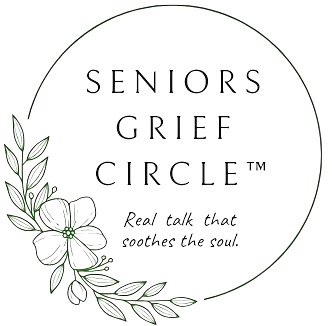Navigating grief, whether as an adult child mourning a parent or a senior grieving a life partner, is an emotionally challenging journey. Amidst the waves of tears, heartache and sorrow, practicing self-care becomes an essential compass for finding solace and nurturing your well-being.
Here are 10 gentle self-care tips to guide you through this tender process.
Accept Your Emotions Just as They Are
Allow yourself to feel and express a range of emotions that accompany grief. If you’re an adult child grieving the loss of your parent, your emotions might be different than those of your surviving parent or your siblings, and vice versa. Honor your own emotions for what they are – they’re yours. Whether it’s sadness, anger, or even moments of laughter as you reminisce, accepting and honoring your emotions is a vital aspect of self-care.
Prioritize Restful Sleep
Grieving can disrupt sleep patterns, impacting your overall well-being. Prioritize restful sleep by establishing a calming bedtime routine, creating a comfortable sleep environment and seeking guidance from your family doctor, therapist or coach if needed.
Move Your Body
Incorporate gentle exercise into your daily routine, whether it’s a leisurely walk, yoga or stretching exercises. Physical activity not only supports your health but also contributes to your overall emotional well-being.
Nourish Your Body
During times of grief, maintaining a balanced diet is crucial for physical and emotional resilience. Focus on eating wholesome, nourishing food and staying hydrated to support your overall well-being.
Connect with People Who Care
Surround yourself with a network of supportive friends, family or a grief support community like the Seniors Grief Circle. You might feel like withdrawing from the world, but connecting to people who care is important to share your feelings, reduce emotional overwhelm and feel supported. Sharing your thoughts and memories with those who understand can provide comfort and a sense of connection.
Create a Sacred Space
Designate a peaceful and comforting space within your home where you can reflect, meditate, light a candle, or simply be. This space can serve as a refuge for moments of solitude, self-reflection, journaling, sipping a cup of tea or reading.
Seek Professional Help
Consider getting help from a grief coach or therapist, or even your family doctor. Professional guidance can provide valuable tools for coping the with complexities of grief and navigating the emotional terrain. A great place to start is by joining the Seniors Grief Circle. A monthly membership will give you access to caring and supportive group coaching, access to a private Facebook community, online resources, podcast episodes and much more. Private 1:1 coaching is also available.
Establish Rituals of Remembrance
Create meaningful rituals to honor your loved one’s memory. Whether it’s lighting a candle, organizing a prayer service, planning a memorial garden or dedicating time to cherished activities, rituals can be a source of tremendous comfort.
Set Realistic Expectations
Grieving is a unique journey. It will be different if you’re an adult child grieving the loss of a parent compared to your parent grieving the loss of their life partner. And it will be different among siblings and grandchildren. Your experience is yours. Setting realistic expectations for yourself is crucial. Be gentle with yourself, acknowledge the ebbs and flows of grief, and allow the healing process to unfold at its own pace, on your terms.
Find Moments of Joy
Amidst the grief, allow yourself to find and enjoy moments of joy. Whether it’s engaging in a hobby, spending time with loved ones, getting out in nature, savoring a special meal, or enjoying a favorite pastime, cultivating moments of joy contribute to your overall well-being and help with healing.
Practicing self-care during grief is an act of compassion toward yourself. By incorporating these tips into your daily life, you’re fostering a foundation of gentle healing, nurturing your heart and spirit as you navigate the path of grief.
Take good, tender care of yourself.
Simply take each day one day at a time.
If you’re looking for some help, consider joining the Seniors Grief Circle. You’ll gain access to our trusted and caring network of people who’ve walked the grief journey and can offer practical self-care strategies. You can also book a 1:1 coaching call for some personalized guidance. Keep in mind you’re not alone, and you have a supportive and caring community at your side when you join the Seniors Grief Circle.

